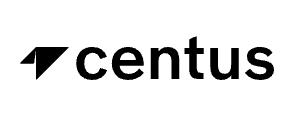Description

Centus Localization

memoQ server
Comprehensive Overview: Centus Localization vs memoQ server
Certainly! Here is a comprehensive overview of Centus Localization and memoQ server:
Centus Localization
a) Primary Functions and Target Markets:
-
Primary Functions: Centus Localization is a cloud-based platform designed to streamline the localization process for businesses looking to engage a global audience. Its primary functions include managing translation workflows, automating repetitive tasks, integrating with other software applications, and providing a collaborative environment for translators and project managers. The platform supports various languages and file formats, allowing for efficient content adaptation across different regions.
-
Target Markets: Centus targets a wide range of industries, including e-commerce, software development, gaming, multimedia, and digital marketing. Its cloud-based nature makes it particularly appealing to small to medium-sized enterprises (SMEs) and companies with remote teams seeking a cost-effective localization solution without the need for extensive IT infrastructure.
b) Market Share and User Base:
Centus Localization, being a relatively newer entrant in the localization management market, might not yet have a large market share compared to established platforms. However, its appeal lies in its affordability, ease of use, and feature-rich platform, which attracts a growing number of SMEs and startups. As a cloud-based solution, it is also accessible to a global audience, gradually expanding its user base.
memoQ Server
a) Primary Functions and Target Markets:
-
Primary Functions: memoQ server is a translation management system designed to facilitate complex translation and localization projects. Its key features include a centralized server environment for project management, translation memory, terminology management, quality assurance tools, and collaboration capabilities. memoQ server is ideal for managing large volumes of translations efficiently while maintaining high-quality standards.
-
Target Markets: memoQ primarily targets large enterprises, language service providers (LSPs), and corporate localization teams that handle extensive and complex translation projects. Industries such as legal, medical, and technical services often rely on memoQ for its robust architecture and detailed project tracking capabilities.
b) Market Share and User Base:
memoQ is a well-established player in the localization software market, known for its powerful server-based solution utilized by numerous LSPs and large enterprises worldwide. It holds a significant market share among organizations that require comprehensive and scalable translation management solutions. Its user base includes professional translators, project managers, and localization departments in a wide array of industries.
Key Differentiating Factors
-
Deployment and Accessibility:
- Centus Localization is a cloud-based solution, which means it requires no on-premises installation and can be accessed from anywhere with an internet connection, making it highly accessible and easier to maintain.
- memoQ server, in contrast, is typically a server-based solution that may require more complex deployment and IT infrastructure setup, appealing to organizations that need in-house control and more robust security measures.
-
Target Audience:
- Centus aims at SMEs and startups seeking affordable, flexible, and cloud-based localization management solutions, whereas memoQ targets enterprises and LSPs with the infrastructure to support its comprehensive and powerful server-based system.
-
Feature Set and Customization:
- Centus offers a range of features that cater to straightforward localization processes, focusing on ease of use and integration with various platforms.
- memoQ is known for its detailed feature set that includes advanced project management, extensive customization, and higher-end quality control measures, appealing to users with complex workflow requirements.
-
Cost Structure:
- Centus, being cloud-based, typically offers a subscription model that might be more cost-effective for smaller teams or businesses that prefer to avoid large upfront costs.
- memoQ server might involve higher initial setup costs and licensing fees, making it a more substantial investment geared towards organizations with larger translation demands.
Both Centus Localization and memoQ server address the needs of different segments within the localization market, offering tailored solutions that align with the unique requirements of their target audiences.
Contact Info

Year founded :
Not Available
Not Available
Not Available
Not Available
Not Available

Year founded :
Not Available
Not Available
Not Available
Not Available
Not Available
Feature Similarity Breakdown: Centus Localization, memoQ server
When comparing Centus Localization and memoQ server, both popular tools in the translation and localization industry, it's essential to examine their core features, user interfaces, and unique capabilities. Both tools are designed to facilitate efficient and effective localization, yet they offer distinct benefits that cater to varying needs in the industry.
a) Core Features in Common
-
Translation Memory (TM) Management:
- Both Centus and memoQ offer robust TM functionalities. They can store previously translated content, which can be reused in future projects to save time and ensure consistency.
-
Terminology Management:
- Each platform allows users to manage terminology databases, ensuring consistent use of terms across projects.
-
Project Management:
- Centus and memoQ include features for project setup, assignment, and tracking to streamline the localization workflow.
-
Collaboration Tools:
- Multiple users can work on the same project simultaneously, allowing real-time collaboration among translators and reviewers.
-
File Format Support:
- Both tools support a wide range of file formats, including common document types and software files, to meet diverse localization needs.
-
Quality Assurance (QA) Checks:
- Built-in QA tools help identify common translation errors and ensure high-quality outputs.
-
Integration Capabilities:
- API and connector support allow integration with content management systems, proprietary systems, or third-party applications.
b) User Interface Comparisons
-
Centus Localization:
- Typically offers a more modern and intuitive interface with a focus on ease of use. Users might find it more straightforward, especially those less experienced with technical tools. It often emphasizes a simplified user experience designed for quick onboarding.
-
memoQ Server:
- While also user-friendly, memoQ’s interface is richly detailed, catering to advanced users who require deep functionality and control over localization processes. It offers extensive customization options, which might appeal to a seasoned localization team.
c) Unique Features
-
Centus Localization:
- AI-Powered Suggestions: Centus may offer more advanced AI-driven suggestions and predictive typing features that enhance translator productivity and ensure quality.
- Simplified Dashboard: The dashboard in Centus prioritizes simplicity and a high-level view, which could be beneficial for users focusing on broad project oversight.
-
memoQ Server:
- Customizable Workflows: MemoQ allows advanced workflow customization, offering tailored solutions for specific project requirements.
- Advanced Linguistic Tools: Offers comprehensive linguistic and resource management features that allow translators and reviewers to handle complex linguistic challenges.
- Server Capabilities: As a server solution, memoQ provides extensive scalability options, including load balancing and high availability, which are vital for larger organizations.
Overall, while both platforms cater to translation and localization needs, Centus might be preferable for users seeking streamlined, user-friendly solutions, whereas memoQ server is ideal for those requiring deep functionality and extensive customization. Each has unique strengths catering to different priorities and scale of operations in the localization industry.
Features

Not Available

Not Available
Best Fit Use Cases: Centus Localization, memoQ server
Centus Localization and memoQ server are both popular tools in the field of translation and localization, each catering to different needs and business sizes. Here’s a breakdown of the best fit use cases and scenarios for each:
Centus Localization
a) For what types of businesses or projects is Centus Localization the best choice?
-
E-commerce and Retail Platforms: Centus Localization is ideal for businesses that need to regularly update and manage vast amounts of product descriptions, customer reviews, and marketing materials across multiple languages.
-
Tech Startups and SaaS Companies: Companies that frequently iterate on their product features and have a need for continuous localization would benefit from Centus' streamlined, automated localization processes.
-
Marketing and Content Agencies: For agencies that manage various content campaigns for international brands, Centus enables efficient localization of multimedia content, adhering to brand guidelines across different markets.
-
Small to Medium Enterprises (SMEs): SMEs looking for an intuitive, cost-effective solution to enter new international markets quickly would find Centus user-friendly and accessible.
b) In what scenarios would memoQ server be the preferred option?
-
Large-Scale Translation Agencies: memoQ server provides robust project management features, making it ideal for agencies needing to handle a large volume of projects simultaneously while collaborating with multiple translators.
-
Corporations with In-House Translation Teams: Larger companies with dedicated translation and localization teams can leverage memoQ server's advanced workflow management, quality assurance tools, and integration capabilities with existing IT infrastructure.
-
Complex Regulatory Environments: Industries like healthcare, legal, and finance, where compliance and accuracy are critical, would benefit from memoQ's strong quality control and audit trail features.
-
Technical Documentation Teams: Companies producing extensive technical documentation, such as software manuals or engineering specs, could find memoQ’s translation memory and glossary features advantageous.
d) How do these products cater to different industry verticals or company sizes?
-
Centus Localization caters primarily to small to medium-sized enterprises and industries focused on digital content and e-commerce. Its cloud-based platform is scalable, offering varying levels of capacity and features that grow with the business. Centus makes it easier for companies to manage rapid changes and frequent content updates, a common requirement in fast-paced industries like retail and digital marketing.
-
memoQ Server, on the other hand, is generally better suited for larger organizations and industries that prioritize customization, security, and integration with existing enterprise systems. It serves industries where linguistic precision and collaboration across different departments and regions are essential. memoQ's robust set of tools and features can handle complex localization workflows and support detailed project management, making it a go-to choice for large corporations and translation agencies.
In summary, Centus Localization shines in dynamic, high-growth environments where speed and simplicity are paramount, whereas memoQ server is best suited to larger-scale operations requiring detailed control, compliance, and integration.
Pricing

Pricing Not Available

Pricing Not Available
Metrics History
Metrics History
Comparing undefined across companies
Conclusion & Final Verdict: Centus Localization vs memoQ server
Conclusion and Final Verdict for Centus Localization vs memoQ Server
After thoroughly analyzing Centus Localization and memoQ server, it is essential to weigh various factors including cost, features, integration capabilities, user-friendliness, customer support, and scalability, to determine which offers the best overall value.
a) Best Overall Value
memoQ Server generally offers the best overall value when looking at a balance of comprehensive features, user support, and scalability, especially for larger teams and complex projects. It provides robust translation memory, server-side automation, and compatibility with a wide range of file formats. For established businesses looking for reliable performance and advanced capabilities, memoQ server stands out despite a higher price point.
b) Pros and Cons of Each Product
Centus Localization
Pros:
- User-friendly interface designed for easy navigation and use.
- Cost-effective solution for smaller teams or startups.
- Efficient cloud-based access, reducing the need for significant local infrastructure.
- Rapid deployment and minimal maintenance overhead.
Cons:
- Limited scalability and advanced functionalities compared to memoQ.
- May lack some customizable features that larger enterprises require.
- Integration options may be less diverse than those offered by memoQ.
memoQ Server
Pros:
- Advanced features including extensive translation memory and automation tools.
- Strong integration with various third-party applications.
- Excellent scalability supporting large teams and complex workflows.
- Reliable customer support with a strong reputation for service.
Cons:
- Higher cost, which may not be feasible for very small teams or localizing organizations with tight budgets.
- Requires more technical know-how for setup and management.
- Some users might find the complexity of features overwhelming if not accustomed to such environments.
c) Specific Recommendations
For users trying to decide between Centus Localization and memoQ server, the choice heavily depends on the size and specific needs of the organization:
-
Small Teams or Startups: If you are a small team or a startup with less complex localization needs, Centus Localization might be the best choice due to its cost-effectiveness and ease of use. It allows you to get started quickly without a significant initial investment in infrastructure or training.
-
Medium to Large Enterprises: For medium to large organizations with more complex projects and workflows, memoQ server is recommended. The advanced features, scalability, and robust integration capabilities will be beneficial in handling large volumes of work efficiently and improving overall productivity.
-
Consider Future Growth: Organizations expecting to scale rapidly might consider starting with memoQ, even if the initial investment is higher, to avoid transitioning to a more complex system later, which could disrupt workflows.
Ultimately, both tools offer unique advantages, and the decision should be guided by evaluating the specific localization strategies, budget constraints, and long-term objectives of your organization.
Add to compare
Add similar companies



